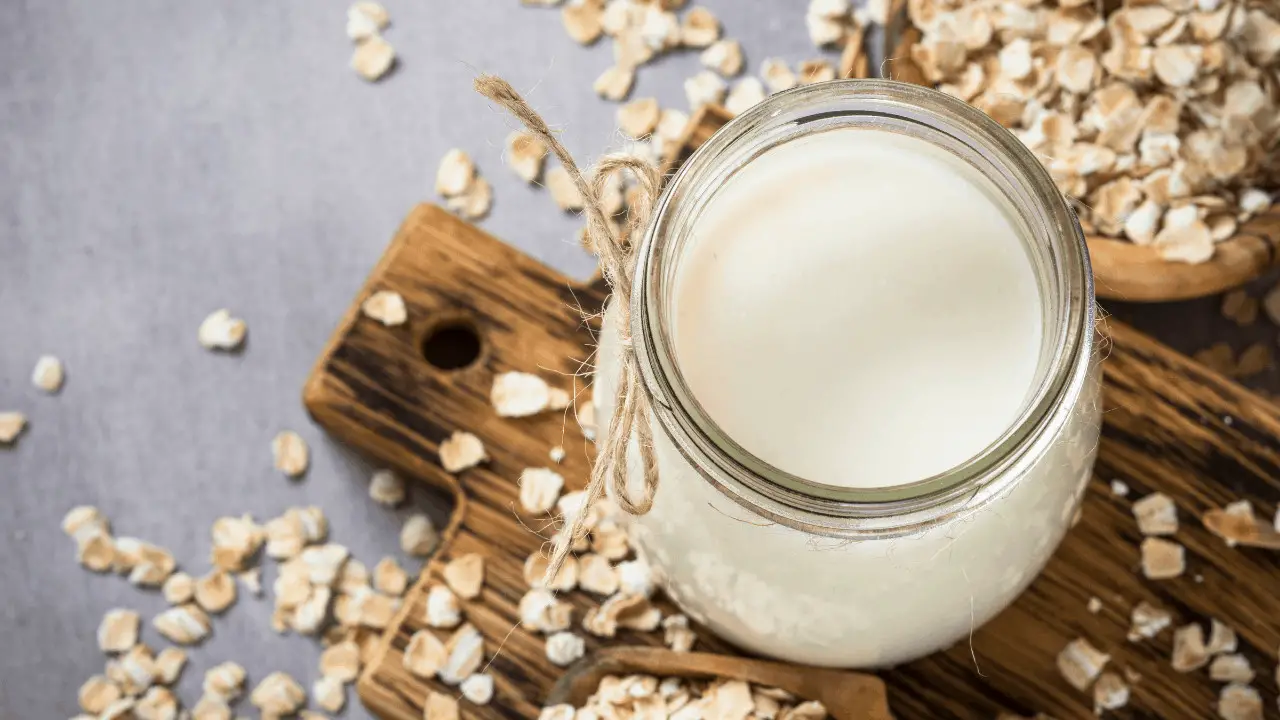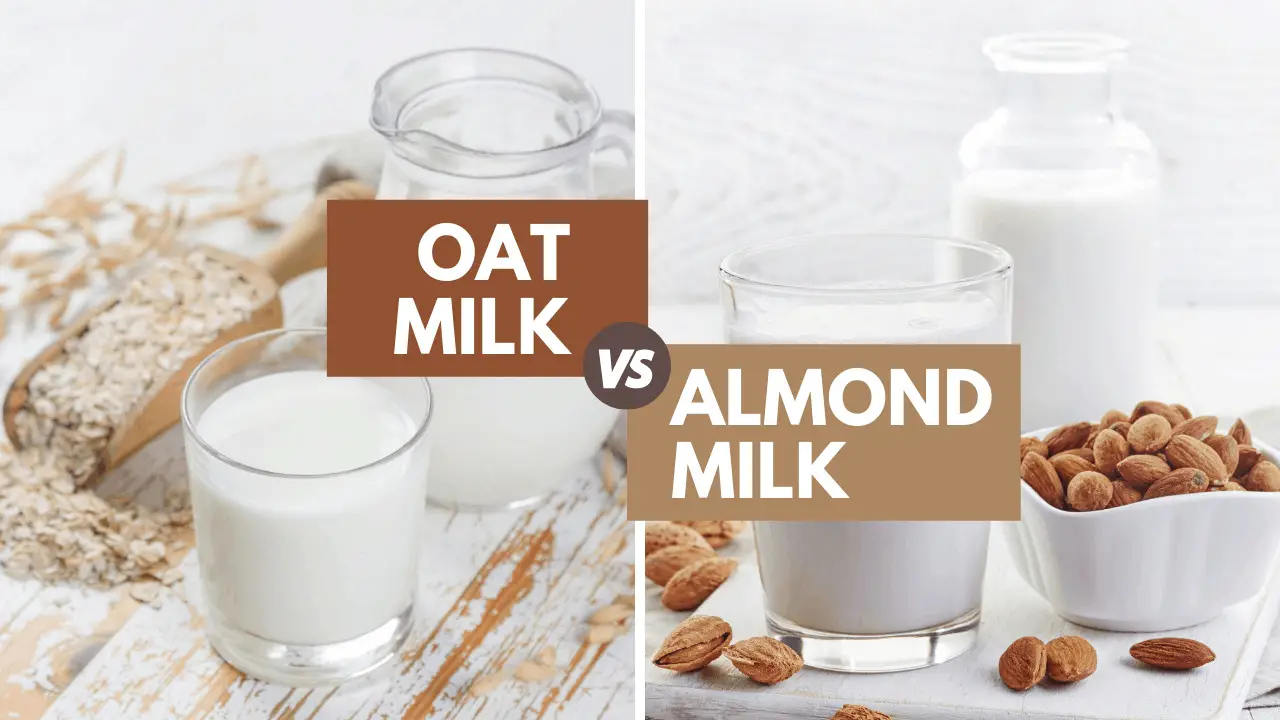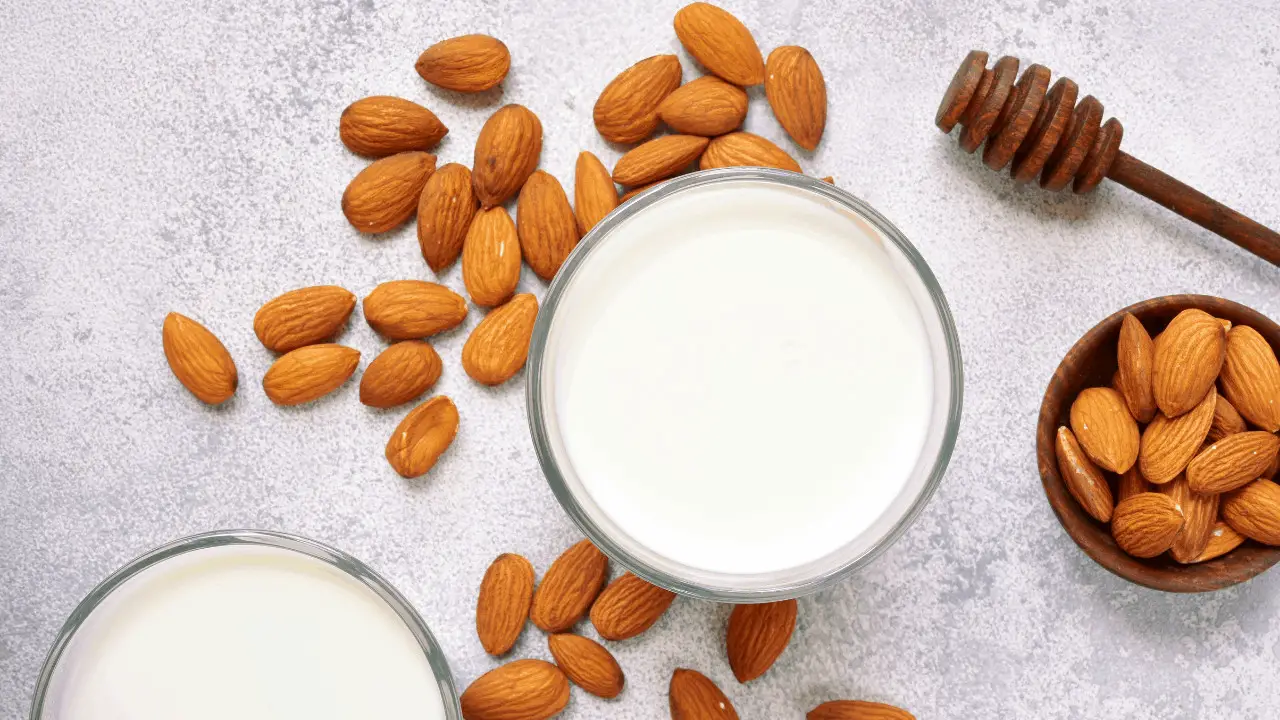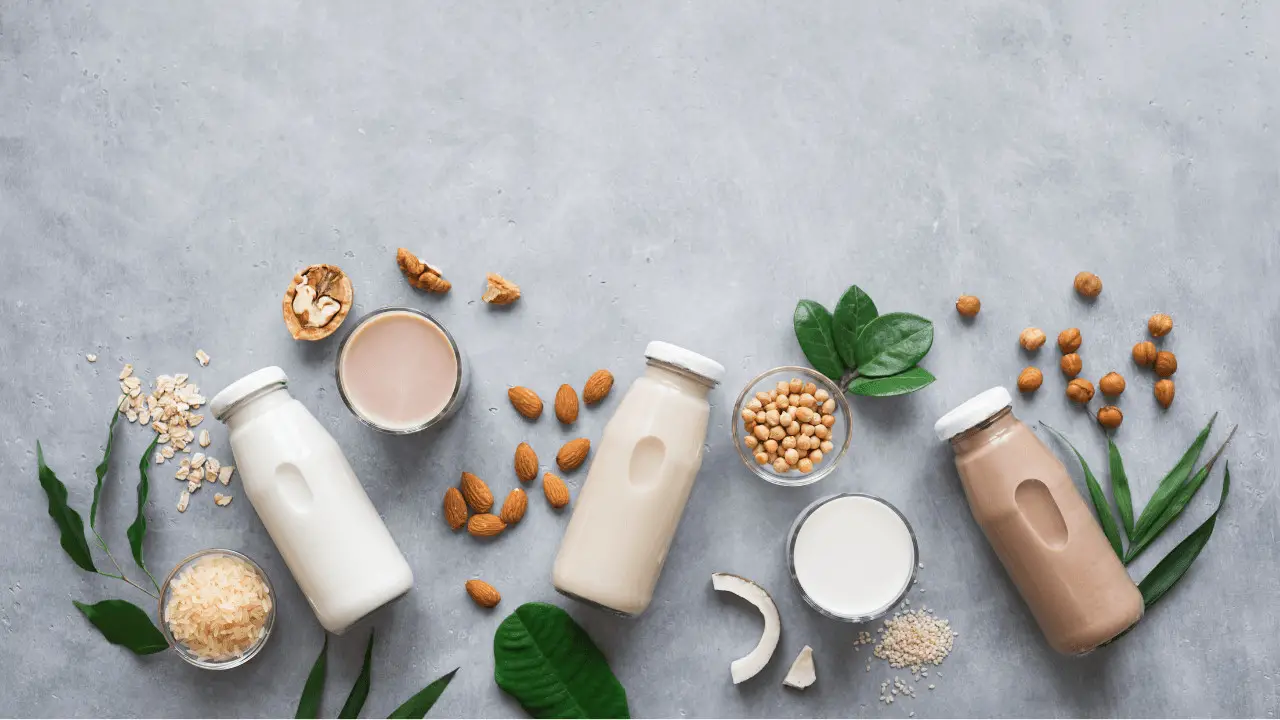With more people choosing to go lactose-free, oat milk is becoming more common in supermarket aisles and consumers’ freezers.
Oat milk is one of the healthiest cow’s milk alternatives available in the market today. It contains:
- 60% starch,
- 11-15% total proteins,
- 5-9% healthy fat (PUFA),
- caloric content equivalent to cow’s milk.
Compared to other milk alternatives, it has the highest carbohydrates and natural sugars content. Though low in calcium and vitamin D content, it has many demonstrated health benefits, most of which are attributed to its soluble fiber content. But how healthy is oat milk in reality? Is there a benefit to drinking oat milk in particular?
Oat milk is a lactose-free, vegan-friendly, and gluten-free milk that is rich in a soluble fiber called beta-glucan. As it contains fiber, it does not spike blood glucose levels quickly, making it a good choice for people with diabetes and those attempting to lose weight.
Health Benefits of Drinking Oat Milk
1. It Helps in Lowering Bad Cholesterol
Studies have found that regular consumption of oat milk results in a significant lowering of total cholesterol and LDL cholesterol compared to drinking rice milk. LDL cholesterol levels, more commonly known as bad cholesterol, are responsible for the harmful effect on heart health and cause heart disease. Additionally, high levels of LDL cholesterol results in atherosclerosis and obesity.
If you have up to moderate levels of hypercholesterolemia and need a milk replacement, consider oat milk.
2. It Is Beneficial for Diabetics
Oat milk is rich in beta-glucans, a soluble fiber that helps increase the gastric transit time, delaying gastric emptying. This effect prevents a sudden rise in blood glucose levels and allows a very steady, slow release of sugar from our food.
3. It Is Useful On Weight Loss Diet
Since oat milk contains beta-glucans, which delays gastric emptying, you will feel full for longer—staying full longer maintains your appetite and can keep you from ravenously eating.
Typically, when you have a high-caloric diet, your body produces more insulin to take care of the high glucose levels from your diet. Once the insulin comes into action, it clears off the extra glucose from your blood. But as soon as your blood glucose comes down, it kicks off sugar cravings; to compensate for this reduction and force you to ingest more glucose.
Since beta-glucan causes a slow, steady rise of glucose, it can help dull intense sugar cravings that can be a significant challenge when losing weight.
4. It May Help You Maintain Your Gut Flora
Since oat milk is rich in soluble fibers, it will help your gut flora thrive. These soluble fibers promote the growth of gut flora. In turn, these gut flora helps maintain the bowel pH levels, prevent inflammation, prevent the development of pathogens, and even play an essential role in the production of vitamin K folic acid.
An imbalance in gut flora can present as bloating, heartburn, diarrhea, and constipation. Swapping your cow milk for oat milk can be a low-hanging win if you frequently suffer from these symptoms.
5. It’s a Great Alternative for Those Who Can’t Have Cow’s Milk
Oat milk is an excellent alternative for anyone who does not tolerate dairy products well and therefore needs a dairy-free diet for health reasons. It has been tested for and recommended for patients with inflammatory bowel disease (IBD), inflammatory bowel syndrome (IBS), eczema, cow milk allergy, and of course, lactose intolerance.
Apart from health reasons, it also fits perfectly in the vegan lifestyle and those who choose dairy-free products for other ethical reasons.
Disadvantages & Side-Effects of Oat Milk
It Is Not As Nutritious As Cow’s Milk
Oat milk is inferior to milk in protein content, calcium, vitamin D, riboflavin, vitamin B12, vitamin A, and iodine. It is worth noting that those who don’t consume milk products are often already deficient in these nutrients, making supplementation all the more necessary.
Many essential nutrients get destroyed while processing this milk, making it even less nutritious. Although alternative milk brands frequently fortify their products with essential vitamins and minerals to compensate for these deficiencies, it is typically advised to meet dietary needs with real food.
It should go without saying, but Plant-based and cereal-derived milk don’t make a good weaning food since they lack protein. Cases of Kwashiorkor (protein-energy malnutrition) are often seen in western countries that feed this to their infants.
Oat Milk May Affect the Absorption of Essential Essential Minerals
Oat milk contains phytates and trypsin. These are anti-nutritive compounds that hinder the absorption of vitamins and minerals.
Phytates interfere in absorbing compounds like calcium, iron, magnesium, and zinc, which are essential minerals involved in many crucial functions in our body. These functions include maintaining bone health, forming new blood cells, maintaining the nervous system, etc. Poor absorption of these components may, over time, lead to their deficiencies which may present as anemia, pathological fractures, and headaches.
Trypsin, on the other hand, interferes with the digestibility of proteins. However, it can be rendered inactive by heat. If you choose to drink this milk, we recommend limiting drinking oat milk with your main meals and keeping a gap of a few hours between oat milk consumption and your food intake. This way, you can prevent oat milk from interfering with the absorption of these nutrients to some extent.
Is Oat Milk Better Than Other Milk Alternatives?
All these milk alternatives are more or less nutritionally similar, but each has its specific benefits and drawbacks and ideal application. For example, a person with nut allergies can’t have almond milk, so oat milk and soy milk would be better options.
If you are trying to use plant milk in coffee, it would be best to stay away from almond milk as it tends to separate when added to hot beverages. In those cases, soy milk or oat milk will prove better milk alternatives.
Similarly, if you have IBD and IBS, oat milk is the preferred milk and is often recommended for these patients.
If you are looking for milk replacement with higher protein content, soy milk would most likely be the best option as it contains soy protein.
All in all, choosing the suitable milk alternative is a matter of personal preference.
How to Make Oat Milk at Home?
Preparing oat milk is simple. All you need is oats and water.
- Take 1 cup oats in 4 cups of water, and soak it in water till soft. Once soft, blend the oats with water in a blender.
- Then, take a cheesecloth and strain the mixture to get the milk out of it. Homemade oat milk has a creamy texture.
Homemade oat milk will be cheaper but will be less nutritious when compared to store-bought oat milk. So although you can make oat milk at home, this may not necessarily be the most nutrient-rich version you can get. For this reason, store-bought brands fortify their milk alternatives and have a slight edge over what you make at home.
Conclusion
Oat milk is excellent for people with diabetes, hypercholesterolemia, and those trying to lose weight. It also greatly benefits people with lactose intolerance. It is vegan-friendly and helpful for patients with IBD and IBS.
Pure oats are gluten-free and therefore suitable for people with gluten intolerances, and celiac disease. Make sure the oats you choose are free of cross-contamination. Suppose your oat milk is contaminated with gluten-containing products like wheat, rye, and other grains (which quite frequently happens when processing). In that case, that might worsen your celiac disease symptoms and not improve them.
One important thing to remember before choosing oat milk is that it is nutritionally deficient in many vital nutrients, just like many other plant-based milks. If you buy your oat milk from grocery stores, make sure it is fortified with some extra vitamins and minerals.
Lastly, do make sure to check nutritional labels to make note of the added sugar in the product. Added sugar can quickly add up and negate many of the benefits discussed. Nevertheless, be sure to have a balanced diet to compensate for the nutrients that we usually get from regular milk, and feel free to choose the best milk alternative for your goals!







